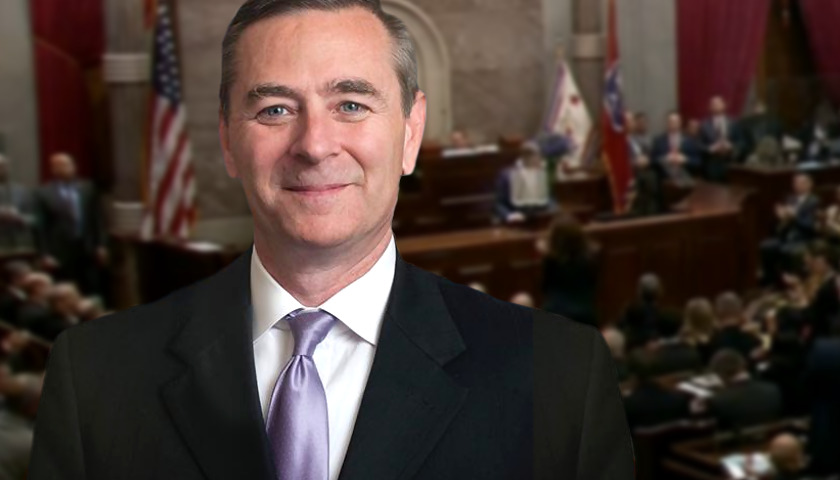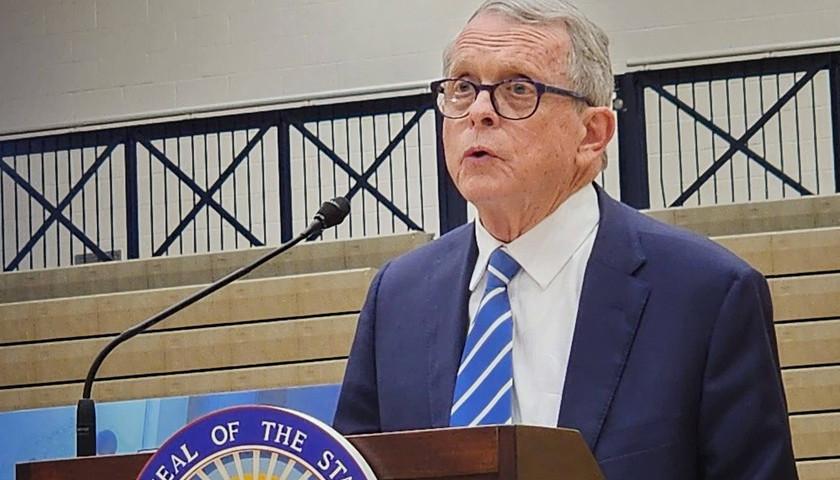Despite the controversies that have surrounded Tennessee Speaker of the House Glen Casada the last two weeks and the relentless partisan drumbeat of the local mainstream media, the legal path to force his removal as Speaker by his political opponents remains unclear.
The controversies erupted a little more than two weeks ago when NewsChannel 5 interviewed Justin Jones, the 23-year-old Vanderbilt University student who had been arrested in October for refusing to leave a private Marsha Blackburn fundraiser and resisting arrest, and was subsequently arrested on February 28 when he allegedly assaulted Speaker Casada and State Rep. Debra Moody at the State Capitol.
In that interview, Jones, who is represented by NewsChannel 5 legal analyst Nick Leonardo, claimed that Speaker Casada and his staff had attempted to frame him when they reported an email from him that arrived in their office email on March 1 to the Davidson County District Attorney’s office as a violation of a court order prohibiting him from contacting the Speaker or his staff.

In that same report, NewsChannel 5 showed a series of text communications between Casada, his chief of staff Cade Cothren, and an unidentified former staffer that included vulgar texts that objectified women.
Subsequently, NewsChannel 5 and The Tennessean have reported a number of stories which claim a variety of additional potential offenses by Speaker Casada.
In addition, a number of high profile political figures on both sides of the aisle have called on Speaker Casada to resign.
While those stories and comments by other politicians have succeeded in whipping up public sentiment against Casada, an attorney who is an expert on the Tennessee Constitution told The Tennessee Star on Tuesday, “There is no clear legal path for the removal of the Speaker of the Tennessee House, nor is there any criteria for removal in the Tennessee Constitution.”
Two sections of The Constitution of the State of Tennessee within Article II applying to the Legislative Department specifically refer to the election of a Speaker of both the House and Senate.
Prior to 1966, Section 11 was the only one to mention the election of Speakers until Section 3 was amended so that it reads, in part, “the Speaker of the Senate and The Speaker of the House of Representatives, each shall hold his office as Speaker for two years or until his successor is elected and qualified.”
In the August 23, 1979, Opinion No. 79-383 by the State of Tennessee Office of Attorney General, cited and made available by Nashville Public Radio, addressed the question of whether the Speaker of either chamber is “elected for two year terms or simply to serve at the pleasure of a majority of the membership.”
The Attorney General (AG) referenced Cooley’s Constitutional Limitations, which noted that the majority of a legislative body may retire its speaker and elect another, except where there is another provision by constitution or statute. The authority for the note came from the Colorado Supreme Court that relied on the absence in the Colorado Constitution of any specified term of their Speaker.
“There is thus now specific constitutional provision for a term of two years for the Speakers,” states the AG opinion.
The AG further opined that the opposite applies when a term is specified, “It follows that subsequent to the adoption of the 1966 amendment to Article 2, Section 3 of the Tennessee Constitution, that the Speaker of the House and the Speaker of the Senate are elected by the members of the respective bodies for a term of two years.”
In a later opinion from November 12, 2008, No. 08-173 by Tennessee’s AG, relative to the end of the Speaker’s service and power of office, Opinion No. 79-383 was cited. Additionally, the AG opined, “Thus, the Speaker of each House holds office as Speaker for two years from the day he is elected as Speaker, and until his successor in office is elected and qualified.” (emphasis added)
Speaker Glen Casada (R-Franklin) was elected as Speaker of the Tennessee House of Representatives on January 9, 2019, which would put the end of his term as Speaker in January of 2021.
The State Constitution’s Article II, Section 12 allows for each House of the General Assembly to “determine the rules of its proceedings, punish its members for disorderly behavior, and, with the concurrence of two-thirds, expel a member, but not a second time for the same offense; and shall have all other powers necessary for a branch of the Legislature of a free state.” (emphasis added)
It is uncertain whether two-thirds majority of the 99-member State House could agree to expel Casada from the House, as it has seemed a challenge to achieve a 10-member request within the majority Republican Caucus to hold a Caucus meeting.
“Before there can be any serious consideration of removing Speaker Casada from the House there should be a clear and convincing explanation of what HE is charged with actually doing…not simply rumors or accusations of what others, such as his former Chief of Staff and the former staffer who was a party to those racists texts, may have done,” Tennessee Star political editor Steve Gill said on Tuesday.
“Most of what seems to be motivating the ‘remove him’ frenzy lacks a specific example of what Casada is actually guilty of doing other than a couple of texts referring to the bragging sexual claims of his staffer. Unless or until there is more that Casada himself is proven to have done it is unlikely that 2/3 of the House will vote to remove him, even if they can,” Gill added.
Notably, even if the House were to expel Casada as a member, it is not at all clear that the Speaker of the Tennessee House must also be a member of the House, and once elected to a two year term as Speaker at the time he or she was a member of the House, a former House member might still be able to serve as Speaker.
Members of the General Assembly are “privileged from arrest,” per Article II, Section 13, except in the case of treason, felony or breach of the peace. While accusations of “unauthorized surveillance” and altering an email have been made, as reported by The Star in the case of alleged wrongdoing regarding the vote on Governor Bill Lee’s Education Savings Accounts legislation, the FBI is unable to confirm or deny the existence of an investigation or comment in any way on such a matter.
If an FBI investigation were underway, as NewsChannel 5 reported on Thursday, but The Star subsequently noted is based on no verifiable evidence, the timing for the completion of an investigation is unknown as is whether the purported investigation would result in the filing of charges by the U.S. Attorney’s Office.
Unconfirmed reports of FBI investigations into alleged wrong doing are a significant distance from felony convictions of specific crimes.
There have been requests, demands or appeals for Governor Bill Lee to call a special session to deal with the matter.
Tennessee’s Constitution Article III relative to the Executive Department, Section 9 addresses the ability to call a special session as follows: “He may, on extraordinary occasions, convene the General Assembly by proclamation, in which he shall state specifically the purposes for which they are to convene; but they shall enter on no legislative business except that for which they were specifically called together.”
Calling the General Assembly would involve the State Senate, which has no role in dealing with the matter of the Speaker of the House. Perhaps more importantly, the Constitution specifies that no “legislative business” other than that for which the legislature was convened may be addressed, and dealing with the Speaker of the House would not apply.
Lacking a felony conviction, there appears to be no clear legal path for the removal of a Tennessee Speaker of the House.
—
Laura Baigert is a senior reporter at The Tennessee Star.






When the facts are against you…. argue the law….